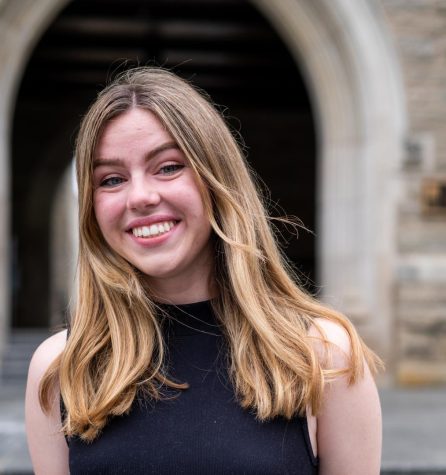Lepage Center Concludes “Decolonizing History” Series
April 16, 2021
On Wednesday, April 21, the Lepage Center for History in the Public Interest will conclude its “Decolonizing History” series with the event “Decolonizing COVID-19.”
The “Decolonizing History” series focuses on examining what it means to “decolonize” history, part of a larger social movement combatting the lasting effects of colonialism, including colonial mentalities. The six month series began last semester, kicking off with an examination of “Decolonizing the Curriculum” in September. Each following month focused on a different topic to decolonize, with October’s being land, November’s being the Church, February’s the empire, March’s being art and April’s being COVID-19. The series’ events have fostered dynamic conversations about important topics and amassed an impressive array of guest speakers. For example, the event on Nov. 4, “Creating Our Own Narrative: A Conversation with Dr. Tia Noelle Pratt, Curator of the #BlackCatholicSyllabus,” examined the way citational practices among Church scholars contributed to the erasure of Black Catholics throughout the Church’s history. Another event, “Decolonizing Exhibitions: Indigenous Perspectives,” raised the question of how Indigenous practices of curating contribute to decolonizing American art. Speakers at this event were Teri Greeves, an artist and independent curator, and Jill Ahlberg Yohe, associate curator of Native American Art of the Minneapolis Institute of Art (MIA).
April’s events have been just as impressive as the series’ previous ones. “Decolonizing COVID-19” began on April 7, with “Decolonizing Public Health: A Conversation with Dr. Graham Mooney.” This event asked important questions, including “How is the history of medicine and healthcare in the USA marked by racial injustice and myriad forms of violence?” and “How have race and class politics informed public health systems and policies, past and present?” Graham Mooney, an Associate Professor in the Department of the History of Medicine, School of Medicine and the Department of Epidemiology, Bloomberg School of Public Health at Johns Hopkins University answered these questions.
The next event, titled “Decolonizing Vaccines: A Roundtable Discussion with Dr. Merlin Chowkawanyun, Dr. Jayati Ghosh and Dr. Farren Yero,” took place on April 14. This event asked the questions “How are inequalities within and between countries shaping the development and distribution of the COVID-19 vaccines?” and “How does the history of vaccines help us make sense of the power and politics of vaccines and vaccination efforts today?” The event featured Chowkwanyun, Donald H. Gemson Assistant Professor of Sociomedical Sciences and a core faculty member of the Center for History and Ethics of Public Health at Columbia University, as well as Ghosh, Professor of Economics at University of Massachusetts Amherst and Yero, Postdoctoral Associate in Gender, Sexuality and Feminist Studies at Duke University.
The final event of the series, “Decolonizing COVID-19: Conversation with Dr. Sharelle Barber and Live Q&A with Dr. Marcella Nunez-Smith,” takes place on Wednesday, April 21, from 12:20-1:30 p.m. The event will seek to answer the questions “How are past legacies of medical racism and present socio-economic disparities shaping the disproportionate and severe impact of COVID-19 on communities of color and other underserved populations?” and “What efforts are currently underway to ensure health equity in the government’s national plan to eradicate COVID-19?” The event will feature Barber, Assistant Professor in the Dornsife School of Health’s Department of Epidemiology and Biostatistics and the Drexel Urban Health Collaborative at Drexel University, as well as Nunez-Smith, Chair of President Biden’s COVID-19 Health Equity Task Force and Associate Dean for Health Equity Research and Associate Professor of Internal Medicine and Public Health at Yale School of Medicine.











